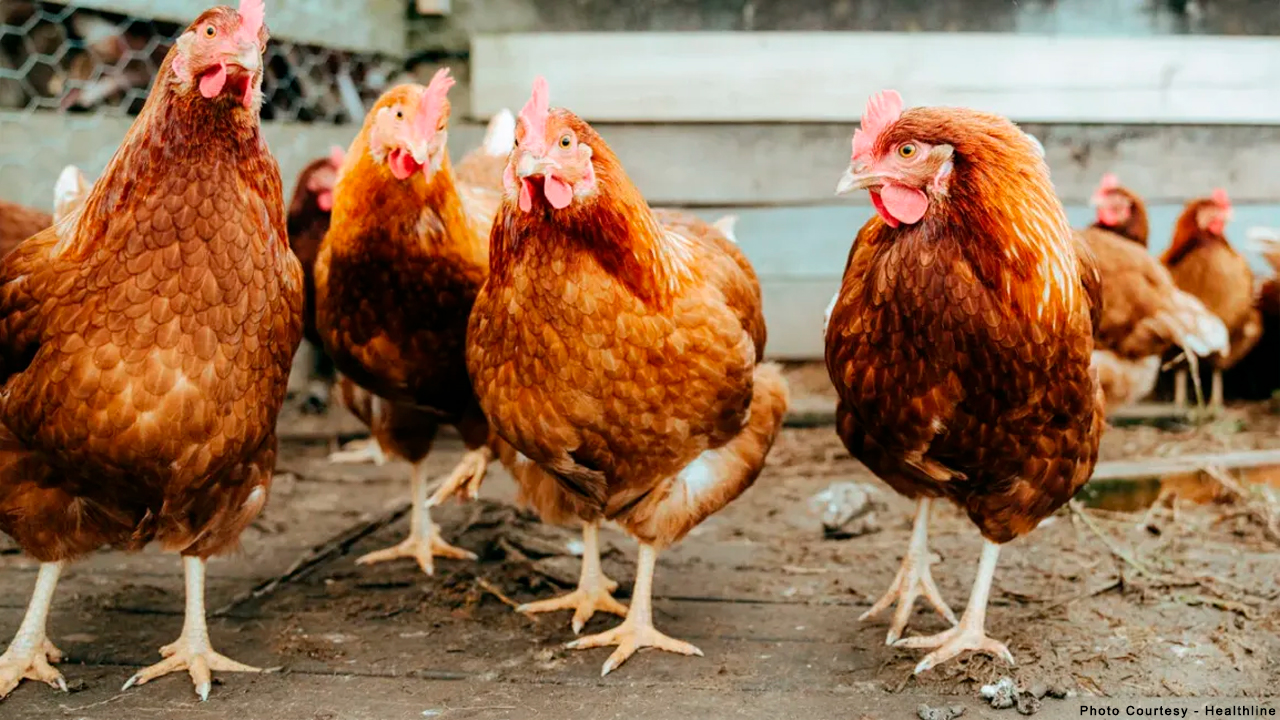The Jharkhand government is on alert after a rise in bird flu cases in a poultry farm in the Bokaro district. On this farm, around 400 chickens died in the last five days after being affected by bird flu. Avian influenza, also called bird flu, is an infectious viral disease in birds. The virus gets transmitted through their feather or faeces. The risk factors for human increases with direct or indirect exposure to infected, live, or dead poultry or contaminated environments such as live bird markets. Experts suggest that slaughtering, de-feathering, and preparing poultry for consumption can exacerbate risk factors.
The incubation period of the influenza A virus ranges from 2-5 days and can go up to 17 days.
Symptoms of avian influenza in humans
- Influenza A virus in humans causes mild to severe influenza-like illnesses.
- Common signs of bird flu are – Fever, cough, sore throat, muscle ache, nausea, abdominal pain, diarrhoea, and vomiting.
- In addition to these, respiratory illnesses like shortness of breath, difficulty breathing, pneumonia, acute respiratory distress, and respiratory failure are also seen in some cases.
- Also, neurological changes like altered mental status and seizures are common.
Prevention
- Following good hygiene is effective in keeping avian influenza at bay.
- Wash all surfaces that come in direct contact with raw poultry with hot and soapy water such as cutting boards and utensils.
- Properly cooking chicken dishes for a minimum of 30 minutes. It must attain a minimum internal temperature of 74 degrees Celsius.
- Avoid eating raw or uncooked eggs as eggshells can be contaminated with bird droppings.

 Recently, a fresh new case of avian influenza has been seen in the Bokaro district of Jharkhand. The government is on alert after 400 chickens died in the last 5 days after being affected by bird flu confirms a Kolkata lab.
Recently, a fresh new case of avian influenza has been seen in the Bokaro district of Jharkhand. The government is on alert after 400 chickens died in the last 5 days after being affected by bird flu confirms a Kolkata lab.










.jpeg)

.jpeg)
.jpeg)

.jpeg)


.jpeg)



.jpeg)
.jpeg)
.jpeg)


.jpg)


.jpeg)
.jpeg)